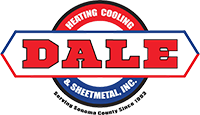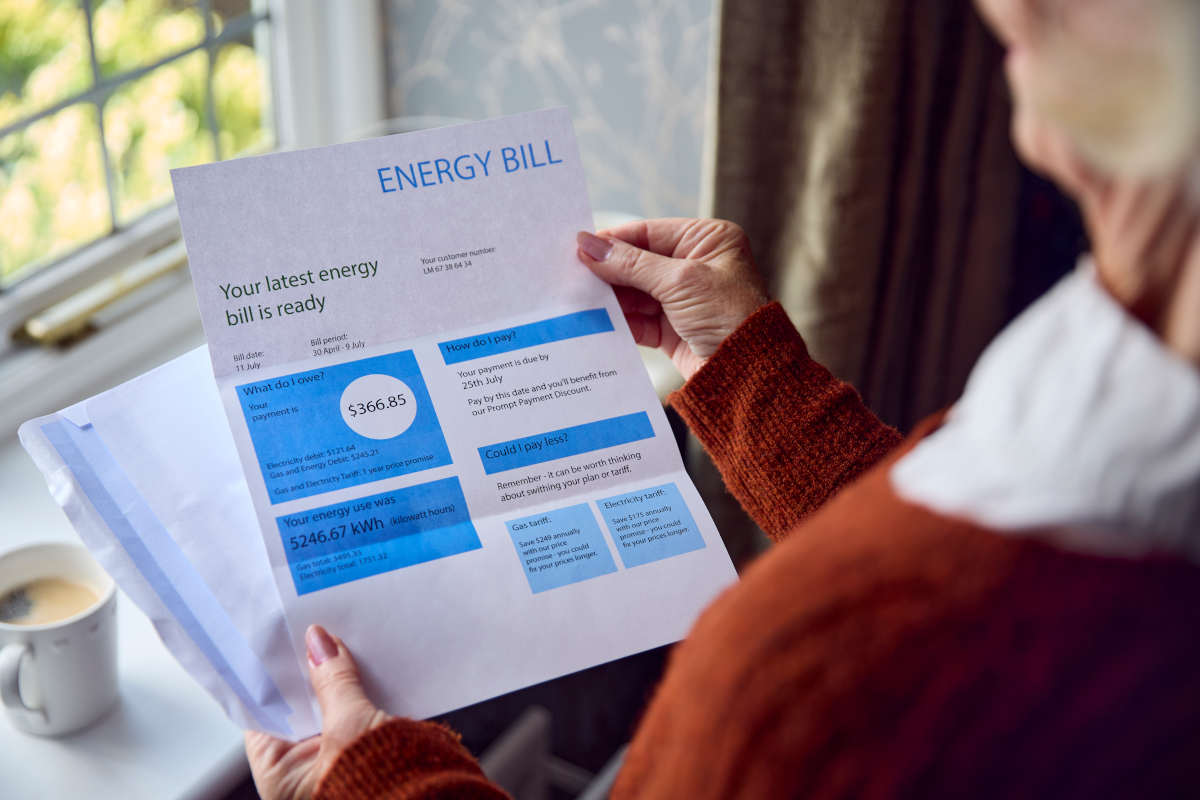Updated 7/18/2025
As Sonoma County heats up, so do concerns about energy bills. The hot, dry summers we experience in Northern California can put a strain on both your air conditioning system and your wallet. As your neighbors here at Dale HCS, we understand the balance between staying comfortable and keeping costs manageable. That’s why we’ve compiled these proven efficiency tips specifically tailored to our local climate conditions.
| Efficiency Strategy | Key Benefits |
|---|---|
| Regular Maintenance | Up to 15% energy savings, extended system life |
| Smart Thermostat Use | 10-15% reduction in cooling costs |
| Strategic Ceiling Fans | Raise thermostat 4°F without comfort loss |
| Filter Replacement | Improves efficiency, air quality, system longevity |
| Shade Management | Reduces indoor heat gain by up to 30% |
Essential Maintenance for Maximum Efficiency
The foundation of energy efficiency starts with proper system maintenance. In Sonoma County’s dusty summer conditions, your AC system works harder than you might realize. A well-maintained air conditioner can use up to 15% less energy than a neglected one. This translates directly to lower utility bills while extending the lifespan of your cooling system.
Professional maintenance should be scheduled at least once annually, ideally in spring before the heavy cooling season begins. During these service visits, technicians check refrigerant levels, clean coils, inspect electrical components, and ensure optimal airflow. These adjustments help your system run at peak efficiency during our hottest months when performance matters most.
Between professional visits, there’s plenty you can do to maintain efficiency. The most important DIY task is regular filter replacement. When dust and debris clog your filter, your system must work harder to push air through, increasing energy consumption and reducing cooling capacity. In our local climate, checking filters monthly during summer is recommended, with replacements typically needed every 1-3 months depending on your filter type and household conditions.
Smart Thermostat Strategies for Sonoma Summers
One of the most effective ways to reduce cooling costs is through strategic thermostat management. The Department of Energy estimates that for every degree you raise your thermostat above 72°F, you can save up to 3% on cooling costs. In Sonoma County, where daytime temperatures often soar but evenings cool significantly, programming your thermostat to match these natural patterns maximizes savings.
Consider implementing these thermostat strategies specifically designed for our local climate:
- Program higher temperatures (78-80°F) during peak daytime hours when electricity costs more and demand is highest.
- Take advantage of our cool mornings by opening windows and turning off your AC until temperatures begin to rise.
- Set your thermostat to pre-cool your home before peak afternoon hours, then allow temperatures to gradually rise during the most expensive time periods.
- Utilize “away” settings when the house is empty to avoid cooling an unoccupied space.
- Consider investing in a smart thermostat that learns your preferences and optimizes for both comfort and efficiency.
If you’re still using a manual thermostat, upgrading to a programmable or smart model can be one of the most cost-effective investments for improving your home’s energy efficiency. Many of our Sonoma County customers report saving significant amounts on their energy bills after making this relatively simple change.
Home Optimization Techniques for Enhanced Cooling
Beyond your HVAC system itself, several home optimization strategies can dramatically improve cooling efficiency in our Northern California climate. Start by examining your home’s insulation and sealing. During hot summers, proper insulation doesn’t just keep heat out—it keeps your expensively cooled air in. According to the EPA, sealing leaks and adding insulation can improve your cooling HVAC efficiency by up to 20%.
Consider these additional efficiency-boosting strategies for your Sonoma County home:
- Install ceiling fans to create a wind-chill effect, allowing you to raise your thermostat setting by up to 4°F without sacrificing comfort.
- Use window coverings strategically, closing blinds or curtains on sun-facing windows during the day to block solar heat gain.
- Consider reflective window films that reject up to 70% of solar heat while still allowing natural light to enter your home.
- Plant shade trees or install awnings on the south and west sides of your home to naturally reduce heat absorption.
- Check for and seal ductwork leaks, which can waste up to 30% of your conditioned air before it ever reaches your living spaces.
One often overlooked aspect of cooling efficiency is proper ductwork design and installation. In many Sonoma County homes, especially older properties, ductwork may be improperly sized, leaky, or poorly insulated. These issues can significantly reduce your system’s efficiency regardless of how new or energy-efficient your AC unit might be. Professional duct inspection and sealing can resolve these hidden inefficiencies.
The Impact of Proper HVAC Sizing
Many homeowners don’t realize that bigger isn’t always better when it comes to air conditioning systems. An oversized unit will cool your home quickly but cycle on and off frequently, consuming more energy and failing to properly dehumidify your space. This is particularly relevant in Sonoma County, where our summer humidity levels can vary significantly between coastal and inland areas.
Conversely, an undersized system will run continuously on the hottest days, struggling to reach your desired temperature while consuming excessive energy. The key is having a properly sized system that matches your home’s specific cooling load. This requires professional calculation that considers your home’s square footage, insulation levels, window placement, ceiling height, and local climate factors.
According to ASHRAE (American Society of Heating, Refrigerating and Air-Conditioning Engineers), proper system sizing is one of the most critical factors in ensuring energy efficiency and comfort in residential A/C units. Their research indicates that correctly sized systems can operate up to 30% more efficiently than improperly sized units.
If your current system is aging or seems to struggle with cooling your home evenly, consider a professional cooling inspection of your entire HVAC unit. Modern, energy-efficient systems with proper sizing can dramatically reduce your energy consumption while improving comfort throughout your home.
Innovative Solutions for Enhanced Efficiency
For homeowners looking to maximize efficiency beyond basic maintenance and operation, several innovative solutions are worth considering. Zoning systems divide your home into separately controlled areas, allowing you to cool only occupied spaces. This approach is particularly valuable in two-story homes or properties with distinct living areas that may not require constant conditioning.
Another consideration is supplemental dehumidification in certain Sonoma County microclimates. While our region is generally less humid than many parts of the country, coastal areas can experience higher moisture levels. Removing excess humidity allows your air conditioner to work more efficiently while improving comfort. Your body naturally feels cooler at lower humidity levels, even at slightly higher temperatures.
For those considering system replacement, exploring high-efficiency options can yield substantial long-term savings. Modern systems with SEER ratings of 16 or higher can reduce cooling costs by 20-40% compared to older, less efficient models. While the initial investment is higher, the return through energy savings makes these systems increasingly affordable over their operational lifetime.
Regular Maintenance
Save up to 15% on energy and extend system life.
Thermostat Strategy
Reduce cooling costs by 10-15% with smart use.
Optimize Home Setup
Insulation, fans, and shades improve efficiency.
Conclusion: Putting It All Together
Implementing these efficiency strategies can significantly reduce your cooling costs while maintaining comfort throughout Sonoma County’s warm season. Start with the basics—regular maintenance, filter changes, and smart thermostat settings—before exploring more substantial improvements like duct sealing or system upgrades. Each step you take compounds your savings while extending the life of your cooling equipment.
As your neighbors here in Sonoma County, our family-owned business understands the unique challenges of keeping local homes comfortable through changing seasons. If you’re interested in a professional efficiency assessment or have questions about optimizing your current system, contact our team for personalized guidance. We’re committed to helping you achieve the perfect balance of comfort and efficiency in your Northern California home.

